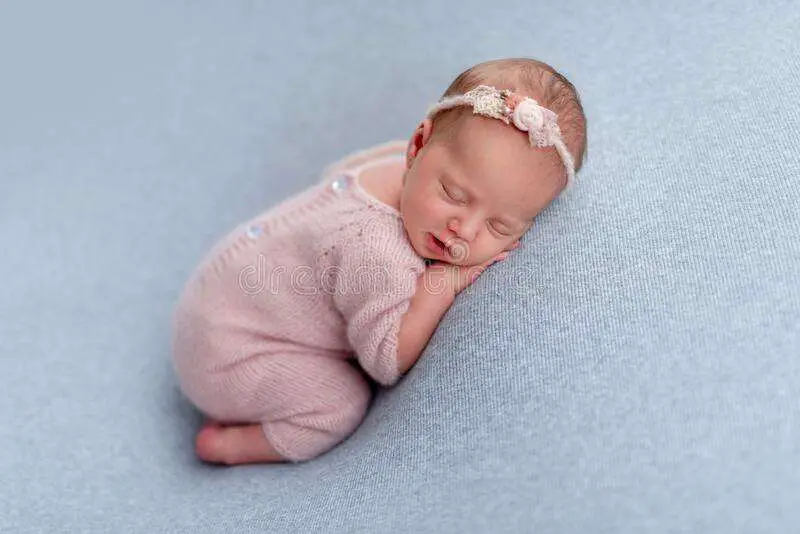Baby Breathing Heavy In Sleep
Ask U.S. doctors your own question and get educational, text answers â it’s anonymous and free!
Ask U.S. doctors your own question and get educational, text answers â it’s anonymous and free!
HealthTap doctors are based in the U.S., board certified, and available by text or video.
Is It Bad For A Baby To Sleep On Her Stomach
Baby sleeping on stomach equals baby breathing in less air. This increases her chance of Sudden Infant Death Syndrome SIDS. About 1,600 babies died of SIDS in 2015, the last year statistics were available. Thats why baby shouldnt sleep on her side either: She can easily roll onto her stomach.
Labored Breathing In Babies
Breathing is part of living, so much so we hardly notice it is happening. We often take it for granted until something makes it difficult. Sometimes children have a hard time taking air in, making it a concern for parents. Labored breathing in baby is dreaded by everyone, as babies are so much more fragile than we are. Watching as your child having difficulty breathing can be a scary thing. Most of the time, the cause of labored breathing is a short-lived infection or another minor issue with the child’s lungs. Most likely, it will resolve with time and proper medical attentions.
Read Also: National Guard At Capitol Sleeping
How Can You Tell If Your Baby Is Having Trouble Breathing
1st September 2021
Baby Vitality: How can you tell if your baby is having trouble breathing?
If theres one thing we know all parents worry about, its baby breathing. We do everything we can to ensure that this tiny being in our care thrives, but it can all come unstuck in just a couple of minutes. One way to help is to educate yourself about signs of distress. Today, were going to look into how you can tell if your baby is having trouble breathing.
What is a normal infant respiratory rate?
Respiratory rate is the frequency with which a human breathes. Normal breathing for a baby newborn to 12 months is between 30 – 60 breaths a minute, and between 20 – 40 breaths per minute while sleeping. Contrast that with a normal adult rate, which is 12 – 16 breaths a minute and you will see that babies breathe a lot more quickly than adults.
What does breathing distress look like?
As with so many things to do with babies, anything outside of the normal range is considered problematic. Fast breathing more than 60 breaths per minute can indicate a whole host of problems, from bronchiolitis to interstitial lung disease.
Then theres any other kind of unusual breathing, from slow or irregular to loud breathing or chest retractions. Breathing distress can come on quickly in infants and should be dealt with as an emergency.
How to check your babys breathing rate?
What are some common respiratory illnesses in babies?
Summary
What Is A Baby Movement Monitor

A baby movement monitor is just what its name impliesa baby monitor that uses sensors to track your little ones movements while theyre asleep and alert you if theres a problem.
In addition to tracking movement, some monitors also track stats like your babys breathing, heart rate, oxygen saturation levels and temperature. Some even provide sleep analytics that can help you gain insights around your babys sleep patterns.
Some monitors use wearables like a sock or a band for tracking. Others use a clip that attaches to your babys diaper, while some use special sensors that are placed beneath your little ones crib mattress.
Some baby movement monitors work alongside a video monitor and are sold as a bundle. Others offer the option to add a video monitor on for an extra cost, and some movement monitors function completely independently of video monitors.
Don’t Miss: Sleep Number Spring Hill Tn
In This Blog We Will Be Shedding Light On The Pros And Cons Of Baby Sleeping On Stomach
As a new parent, looking at your baby sleeping on its stomach might raise concerns for you.
You might have already asked your neighbors, parents, and elders at home. The conflicting advice could be confusing for you as a new parent.
The American Academy of Pediatrics and the National Institute of Child Health and Human Development suggest that the best sleeping position for babies is on their back as it reduces the risk of Sudden Infant Death Syndrome .
Even with proven research, everyone has varied opinions and parents are unable to pick a side.
Sleeping positions that work for other babies might not be the best for your child.
But, dont worry! Weve got you covered.
Sids Risk Linked To Lack Of Experience With Tummy
Babies who never sleep on their stomachs dont learn behaviors that may lessen their risk of sudden infant death syndrome , researchers at Washington University School of Medicine in St. Louis have found. Even so, the researchers caution that infants should always be placed on their backs to sleep.
The first few times babies who usually sleep on their backs or sides shift to the prone position, they have a 19-fold increased risk of sudden death, says senior author Bradley T. Thach, M.D., a Washington University pediatrician at St. Louis Childrens Hospital. We wondered if these babies, finding themselves face down, fail to turn their heads to breathe easier. If so, is that because their reflexes havent developed far enough or because they just dont wake up?
Thach and his colleagues studied 38 healthy infants aged 3 to 37 weeks. Half of the babies usually slept prone or had a history of turning prone during sleep. The other babies had never slept prone. The study is reported in the December issue of the journal Pediatrics.
The researchers constructed a moderately asphyxiating surface, a comforter placed over a foam rubber mattress with a two-inch deep circular depression that would lie directly beneath the babys face. When babies sleep face down on the surface, they rebreath air they have exhaled, and this air can have high amounts of carbon dioxide. A catheter taped beneath the babies noses allowed monitoring of carbon dioxide levels.
Topics
Don’t Miss: Sleep Number Bed Green Bay Wi
Does Sleeping On The Stomach Prevent Choking In Babies With Reflux
No!Even babies with reflux should sleep on their backs, notes the American Academy of Pediatrics . Whilevomiting and spitting up can be scary, rest assured that placing your baby on their back to go to sleep is not associated with choking. While back-sleeping, your babys airway anatomy and gag reflex work to keep them safe. When tummy-sleeping, however, babies are more likely to aspirate or choke, since anything they spit-up in this position can pool at the opening of their trachea.
Baby Breathing Patterns And Sounds While Awake
Now that weve covered the basics, lets talk about all those odd sounds your little one produces. In addition to baby breathing fast, its common for baby to make raspy, snorting, grunting or whistling noises.
To new parents, these noises can be unsettling, but think about your own breathing patterns. You probably dont even realize it, but adults make all kinds of weird noises too! Baby breathing patterns are just as varied as your owntheyll make different sounds, depending on their mood. A happy baby is going to make different sounds than a crying baby.
Also Check: How Much Weight Can I Lose While Sleeping
What Does Different Breathing Noises Indicate In Your Newborn
The following are common breathing sounds in newborns that you should make a note of:
Noticeable Breasts In A Boy
The parents of a 6-week-old boy came to the emergency room after he woke one morning with a warm red lump on his chest, directly under his right nipple. Here, too, estrogen was the cause. As the level of maternal estrogen falls in the baby, the milk-producing hormone prolactin temporarily increases and can cause breast growth.
In fact, at least 50 percent of healthy newborn boys and girls experience this, often on just one side. Five percent of newborn boys will even produce a milk-like substance known as “witch’s milk”and that’s exactly what happened in this case and explains why the lump grew so quickly. The enlargement usually goes away within the first month, but it can last for three months or longer.
When to Worry About Baby Chest Lumps
If the breast appears red, seems tender, or if your baby has a fever, see your pediatrician to determine whether there’s an infection. Also, while breast-tissue development is extremely common in newborns and during puberty , this could indicate a hormonal problem if it happens at other times.
Read Also: Can You Get Dry Eyes From Lack Of Sleep
Keep Your Baby Hydrated
It is a useful way to get relief from nasal congestion and snoring problems.
Snoring may get reduce at some level with the help of hydration.
Being hydrated keeps the mucus thin and ease the breathing.
You can use a combination of saline drops and nasal aspirator if you have trouble feeding your baby.
Applying this before feeding helps to clear congestion.
It will also help your baby to get relief and drink as much as possible.
Why Is My Baby Grunting So Much

Most grunting is totally normal. These funny sounds are usually related to your babys digestion, and are a result of gas, pressure in the belly, or the production of a bowel movement. In the first few months of life, digestion is a new and difficult task. Many babies grunt from this mild discomfort.
Don’t Miss: Burn Off Fat While You Sleep
A Very Sleepy Baby When To Worry
A well baby should wake and demand to feed. If he will not wake for a feed then this is of concern.
There are a few contributing factors. You should ask yourself these questions:
- Is he looking yellow or orange?
- Has he been unwell with jaundice?
- Does he have any other medical concerns?
- Has the doctor or midwife suggested you wake him every few hours to feed?
- Has he produced a good number of wet and pooey nappies?
If you feel concerned, contact your health care professional at any time.
You might be interested in readingJaundice In Newborns The Truth About Jaundice.
Baby Grunting In Sleep And Other Sleep Sounds Explained
Surprise: Sleeping like a baby sounds a lot like a stuffed-up grandpa taking a noisy midday snooze in the recliner! The truth is, babies make lots of weird noises while sleeping. In fact, experts confirm that newborn sleep is, indeed, not at all quiet. And while there are many totally normal baby sleep sounds that require not an ounce of worry…some baby grunting, whistling, and gurgling noises can be cause for concern. The trick? Knowing which baby sleep sounds and grunts are which. Heres help!
You May Like: Sleep Number Store Rochester Mn
When Is It Safe To Let My Baby Sleep On His Tummy
To reduce the risk of sudden infant death syndrome , experts recommend that you place your baby on his back when you put him down to sleep during his first year. The risk of SIDS peaks between 1 and 4 months of age but remains a threat until babies are 12 months.
Is There A Link Between Stomach Sleeping And Sids
Researchers have established the link between stomach sleeping and SIDS by showing that babies who died from SIDS were more likely to be put to sleep on their stomachs compared to babies who lived. After that discovery, public health campaigns were launched to promote back sleep position and reduce the use of the stomach sleep position.
Don’t Miss: Lasik Eye Surgery Do They Put You To Sleep
Baby Sleeping On Stomach: As Always Follow Safe Sleep Guidelines
It is always important that you follow safe sleeping guidelines with your baby but if your baby will be spending any time sleeping on her stomach, then its downright crucial.
Heres a quick overview of safe sleeping recommendations that youll want to follow in your home:
- Your baby should sleep on a firm surface thats covered by a tight-fitting sheet.
- There should be no loose bedding, soft pillows, or stuffed toys in your babys sleeping area.
- Its safest if your baby is sleeping near your bed , but not sleeping in your bed, which carries risks of suffocation.
- Try running a fan in your babys room theres evidence that it can reduce SIDS risks by up to 72%.
- Speaking of fans overheating is linked to SIDS, so dress your baby in light layers for sleep, and keep the bedroom temperature on the cool side.
What Is Sudden Infant Death Syndrome
Sudden infant death syndrome usually occurs in babies under 12 months of age.
SIDs is unexplained. We dont know why this happens to babies we simply know they just stop breathing.
The safe sleep guidelines recommend you put your baby to sleep on his back.
Recommended readings:
SIDS Prevention 6 Ways To Reduce The Risk.
Also Check: Manifest Weight Loss While You Sleep
Normal Respiratory Rates For A Baby By Age
Every infant is different, but a normal healthy range for the first year of life is 3060 breaths per minute.
Breathing usually slows when a baby is sleeping to around 3040 breaths per minute. It may increase when a baby cries or plays.
Breathing gradually slows as a baby gets older, so parents or caregivers may notice that their 10- or 11-month-old breathes more slowly than they once did. Between the ages of 13, breathing slows to 2440 breaths per minute.
Treating A Fever In Hospital

A high temperature will make your child feel poorly, have a faster breathing rate and a faster pulse. Children who are becoming severely ill will also have faster breathing and a faster pulse.
Health care professionals may treat a temperature to see if the pulse and breathing are slower without the fever.
Don’t Miss: Sleep Wake Button Iphone 7
Whats A Normal Newborn Respiration Rate
Research shows that by the time your baby is six weeks in the womb, his or her heart is beating 120 to 160 times per minute, which is about twice as fast as the average adults heart rate. The same goes for newborn breathingyou can count on it being quicker than your breath rate. A normal newborn respiration rate is at least two times faster than an adults.
Newborns typically have a slightly faster respiratory rate than older infants and 40 to 50 breaths per minutecan be normal in the absence of other signs or symptoms of illness, Eboni Hollier, Developmental and Behavioral Pediatrician
Thats pretty quick considering the average adult or older child at rest takes about 12 to 20 breaths per minute!
Like adults, your babys breathing will slow down while resting. Expect baby to breathe about 20 to 40 times per minute when they are asleep.
Were Committed To Providing Free Up
Over 6.5 million people in the UK have a lung condition breathing isnt something they take for granted.
We want to give people with lung conditions the knowledge they need to live well.
Your support helps make sure that we can continue to provide free advice and information when people need it most.
If you find our health advice useful, please consider making a small donation today.
Recommended Reading: Sleep Number Store Morgantown Wv
Should Parents Use A Baby Breathing Monitor
Whether or not you should use a baby breathing monitor is a bit of a debate.
Currently, the American Academy of Pediatrics does not recommend that parents purchase breathing monitors. Research does not support the idea that these monitors protect your child against SIDS, and some episodes of apnea can be entirely reasonable for a healthy, full-term baby. There isnt a scientific link between sleep apnea and SIDS.
Also, these monitors might lead to unnecessary worry. They can have false alarms, causing you to worry and lose even more sleep. Some parents report that they feel more fear and anxiety with the monitors than without them.
For full-term babies at a normal, healthy weight, most doctors wont recommend a breathing monitor. If your baby experiences any apparent life-threatening event or or a bright, resolved, unexplained event , it might be grounds to use a monitor to keep a better watch on your babys breathing.
Premature babies might benefit from a monitor as well, especially if your baby has a history of breathing troubles or a slow heart rate. Babies with sleep apnea or chronic lung disease would require one as well.
Speak to your doctor about whether or not he believes that a breathing monitor is worth it. Some other rare medical conditions may prompt your doctor to advise using one. Examples of these conditions include transient tachypnea, respiratory distress syndrome, and persistent pulmonary hypertension.
Also Check: Donating Sleeping Bags To Homeless